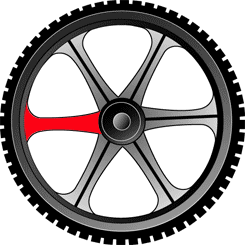Spoke - conflict resolution
Conflict can be viewed as constructive or destructive dependent on the way in which it is perceived and managed by the group. Groups that value difference and view conflict as a productive way to solve problems are able to attain positive outcomes for the group in goal achievement and relationship building. Groups that avoid or suppress conflict and manage it in a negative way can lead to decreased group effectiveness, damaged relationships, internal animosity and reduced commitment to the group.
There are a variety of strategies for managing conflict and effective groups demonstrate the capacity to utilise a range of strategies according to the specific context. Working collaboratively in groups usually requires individuals to be skilled in negotiating to resolve differences in a productive way. To do this individuals are required to apply sophisticated communication skills as they demonstrate a willingness to confront the issue, to see the issue from various perspectives, to clarify the problem, to generate solutions and implement agreed upon solutions. The capacity of individuals to recognise and manage emotions (emotional intelligence) is a significant aspect of managing conflict in a constructive manner.
The wheel model helps us visualise the impact of a faulty spokes/conflict resolution on wheel function/group effectiveness. The wheel model helps us visualise the impact of a faulty spokes/planning on wheel function/group effectiveness. A wheel with short spokes does not travel as far per revolution as a wheel with long spokes.
Key points to remember are:
- Groups that take the time to clarify the impact of conflict in group functioning are more likely develop a positive perspective of conflict and demonstrate optimism about resolving differences.
- Collaboration to resolve conflict involves open-mindedness, empathy and creative problem solving capacities.
- When starting to work in a group ensure that the topic of conflict management is discussed before an actual conflict arises.

